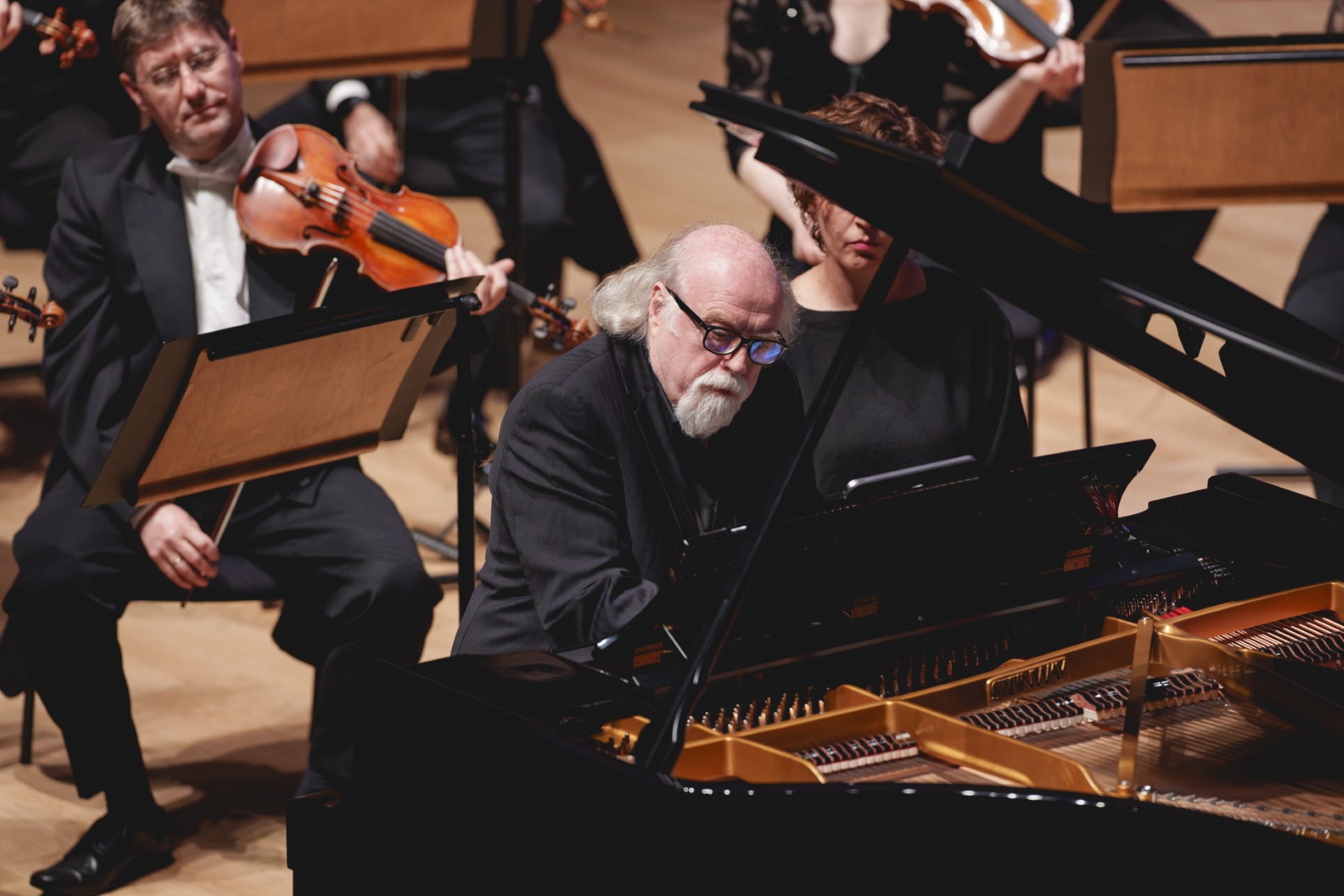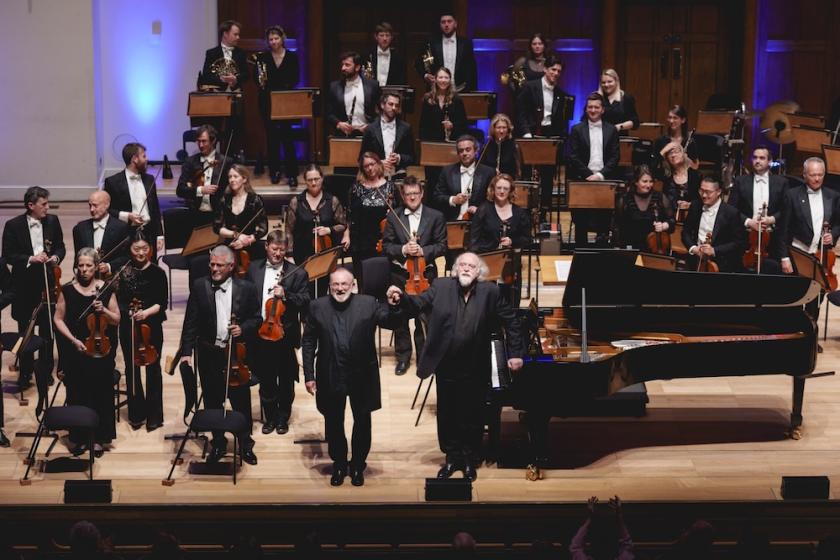The name Arthur Bliss always summoned up for me the image of a fuddy-duddy old buffer writing boring music. But as I’ve discovered his work over the last few years – initially prompted by Paul Spicer’s excellent 2023 biography – I have realised this is not fair, and he’s actually a very interesting composer. This year’s 50th anniversary of his death has seen a push by the Bliss Trust to increase his visibility, with perhaps the most high-profile being the run-out for his Piano Concerto with the RPO at Cadogan Hall last night.
The originally billed pianist Mark Bebbington – an established Blissophile – was indisposed, but his replacement, Peter Donohoe (pictured below by Andy Paradise), couldn’t have been more appropriate, having recorded the concerto in 2004. It’s a concerto in the “big beast” Romantic tradition, written for the World’s Fair in New York in the pre-war months of 1939, starting with a ferocious cascade of octaves in the solo part, and barely letting up for the rest of its 40-minute span. Donohoe went at the music with a no-nonsense approach that made light of its great technical challenges – it was premiered by Solomon and Bliss clearly wanted to make sure he was fully employed. The orchestra mostly kept up, although there were a couple of wobbles, perhaps not surprising in such a big, detailed and unfamiliar score. The second movement Adagietto was lovely, with the bombast dialled down, and lovely lyrical alternations between soloist and orchestra that recall Beethoven’s Fourth. There was a wistful duet with the leader, the music summoning a faded elegance, before the fire returned for the tarantella finale. This has an infectious energy – with byplay with the winds coming off well – but perhaps lacks the big tune that Rachmaninov would have supplied. The blistering ending, with Donohoe flying round the keyboard, is triumphant and temporarily removed all doubts, but the truth is this concerto, although enjoyable, isn’t ever going to achieve mainstream success.
The second movement Adagietto was lovely, with the bombast dialled down, and lovely lyrical alternations between soloist and orchestra that recall Beethoven’s Fourth. There was a wistful duet with the leader, the music summoning a faded elegance, before the fire returned for the tarantella finale. This has an infectious energy – with byplay with the winds coming off well – but perhaps lacks the big tune that Rachmaninov would have supplied. The blistering ending, with Donohoe flying round the keyboard, is triumphant and temporarily removed all doubts, but the truth is this concerto, although enjoyable, isn’t ever going to achieve mainstream success.
Either side of the Bliss we had other British music. Vaughan Williams’s Five Variants on Dives and Lazarus was actually premiered at the same New York concert as the Bliss, but is cut from very different cloth. Humble where the Bliss is grandiloquent, inward where Bliss is all about display, it is a favourite piece of mine. The RPO strings were warm and cantabile, hushed apart from the big climax, in which the players really dug into their strings, before placing the final chord just-so.
The second half was the familiar territory of the Enigma Variations. Conductor Martyn Brabbins introduced it as “perfect: there ain’t nothing wrong with it” and it’s hard to disagree. From the scampering second variation, the stormy fourth to the achingly restrained Romanza, it is a surefire delight. Although “Nimrod” took a little while to settle, I liked Brabbins’s forward momentum in the big crescendo, where some are self-indulgent, and the bravura end of the piece really took flight, with Brabbins’s enjoyment evident.













Add comment